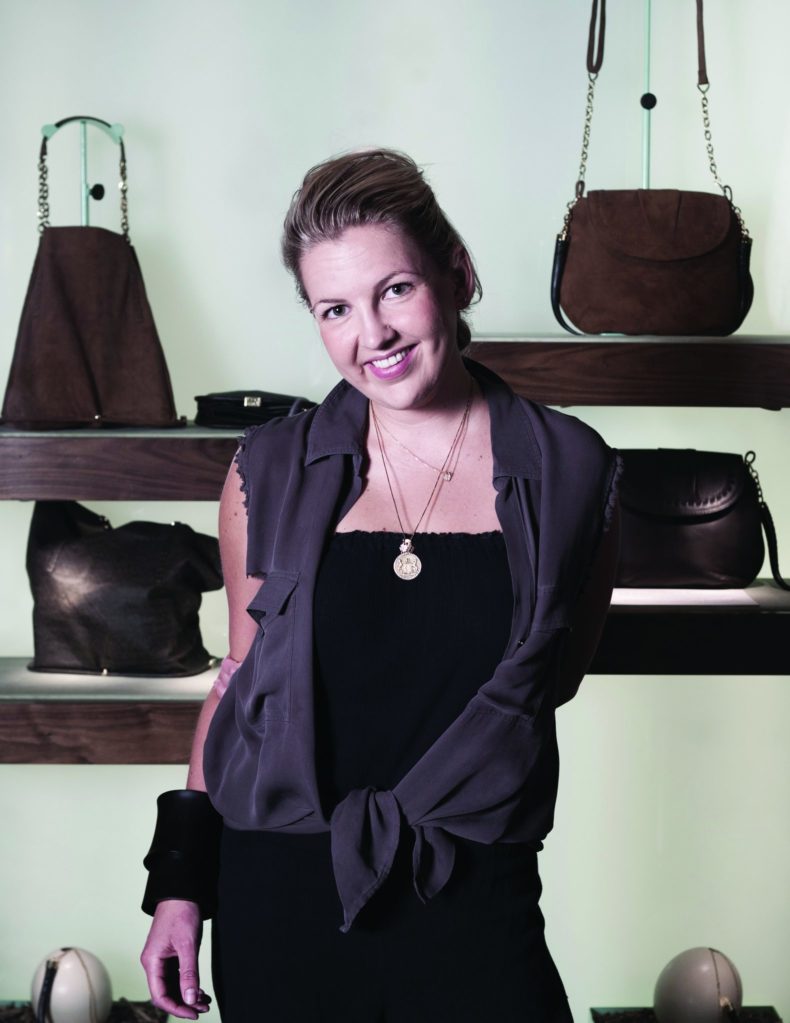The number of millionaires in Africa is rising faster than anywhere else in the world. Thanks to fast-growing economies and a thriving oil industry, the continent’s wealth is forecast to remain on the up. But where do Africa’s nouveau riche spend their money? For now, most jet to London, New York or Singapore to buy the latest fashion.
Hanneli Rupert wants to change this. She is the 28-year-old daughter of billionaire Johann Rupert, the CEO of Richemont, the Switzerland-based group behind top brands like Cartier, Dunhill and Montblanc. With her luxury brand store, Merchants on Long, she brings Africa’s top labels to South Africa, for most this is their debut.
“A lot of African high-end designers export directly without ever selling in their home countries or on the continent,” says Rupert.

Housed in a double storey Art Nouveau building on Cape Town’s famous shopping mile, Long Street, the store delivers a true Cape-to-Cairo experience. Merchants is stocked with merchandise from Ethiopia to Nigeria, Sierra Leone, Cameroon, Senegal and Ghana, most of which is 100% handmade. Luxurious fashion items hang next to antique shelves filled with exquisite jewelry, bags, perfumes and homewares, while works of contemporary African artists and photographers grace the walls.
Loading...
Rupert, who divides her time between Cape Town and the United Kingdom, says she modeled Merchants on London’s famous Dover Street Market, an über-trendy, multi-designer store with a glamorous feel.
“We fit into the idea of the aspiring, new Africa,” she says, while sipping a cappuccino.
Merchants’ in-house coffee bar only serves ethically-produced coffee grown on the continent, that can be drunk from crockery custom-designed for Merchants, by South African ceramicist Michael Chandler.
The store attracts a diverse mix of customers, ranging from European and American tourists to African business travelers and South Africans.
Before Rupert opened Merchants in late 2010, she spent close to a year traveling across the continent to pick and choose the designers she wanted to work with. She was looking for creatives who didn’t imitate European design but had developed a personal style linked to their African heritage.
“I want to grow an African aesthetic. I want Africa to be known as a hub for exotics and manufacturing, not only as an export haven for raw materials,” she says.
Since then, Rupert has worked tirelessly to put African designers on the global map. The Merchants pop-up store she opened in London last May, which received much praise, was the first step towards putting a global spotlight on African luxury goods.
“There is such a desire to see contemporary African design internationally. I am absolutely certain Africa is going to be the next booming art and design market. It’s already slowly happening,” says Rupert.
On the continent, too, the rich and trendy have taken note. In March, Rupert represented some of her designers at the annual Arise Magazine Fashion Week in Lagos, Nigeria; the labels were applauded for their style and quality.
“I want to showcase the manufacturing capabilities of the continent. People have a lot of misconceptions. When they think of design in Africa, they think of beading, not of sustainable trade. I wanted to give people a different perspective,” she says.
Rupert puts the new interest in African high-end fashion and design down to a wave of brain regain—a reversal of the brain drain of the 1990s, when thousands left the continent to pursue job opportunities overseas.
“There is a new trend of patriotism on the continent,” she says.
Rupert is part of that trend. She trained as a fine artist and painter and returned to South Africa, after a four-year stint in London and Athens, to start Okapi—a line of luxury leather handbags that feature springbok horns as talismans. She planned to launch an Okapi flagship store in Cape Town, but her father suggested that she open a multi-brand store first, to increase marketability.
“Merchants would never have happened without his advice,” she says.
Johann Rupert knows what he is talking about. He runs the world’s third largest luxury goods company, which he inherited from his father, Anton, one of South Africa’s most successful business tycoons. With £10 in his pocket in 1941, Anton Rupert started a multi-million dollar conglomerate that today spans luxury goods, finance, tobacco and mining interests, and encompasses hundreds of companies in 35 countries across six continents. The business later split into Remgro and Richemont. FORBES estimates the family’s net worth at $6.6 billion.
Two generations later, the luxury business is almost an inherent part of Hanneli’s genes.
“It’s having the access and growing up in an environment where you learn about business on a day-to-day basis. I learnt simple but important things from my father, like not underestimating your customer, and customer service being hugely important. I also learned to rely on my instincts,” says Rupert.
And her instincts tell her that there’s an increasing demand for authentic, ethically-manufactured African goods. She made this the overarching concept behind her Okapi label and Merchants on Long.
“There is a shift towards buying locally. People want traceability when it comes to what they eat. They want to know where it comes from. People start to want the same thing for clothes and design,” she says.
With entrepreneurship in her veins and an eye for opportunity, Rupert is set to make her mark as her family’s next generation of luxury business owners.
Loading...





















